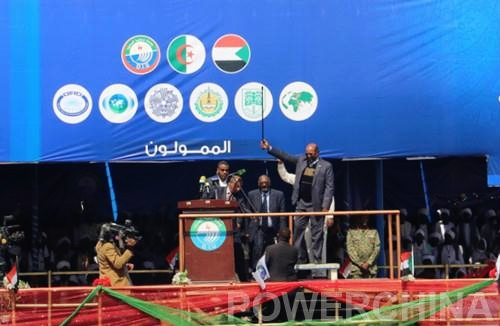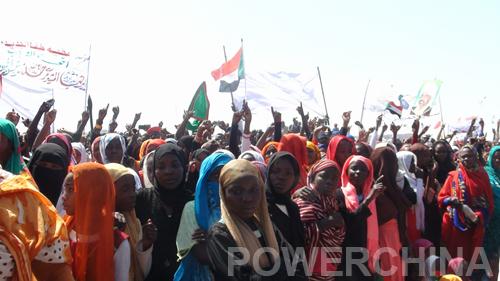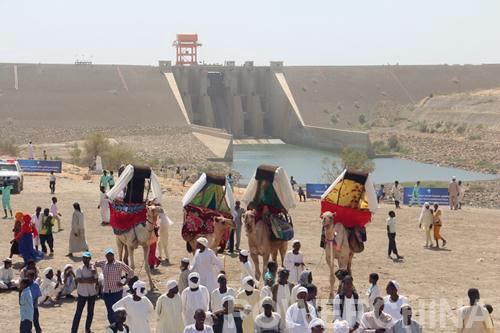Sudan's Upper Atbara Dams Complex began to generate electricity on Feb 2.
At a ceremony held to celebrate the milestone event on the same day, Sudanese President Omar al-Bashir, investors and the local governor delivered speeches. It marked the second time for al-Bashir to attend one of the project's business events since he first inspected its construction site on Feb 12, 2012.
 |
Li Lianhe, Chinese ambassador to Sudan, Zhou Chunlin, counselor of the Economic and Commercial Office of the Chinese Embassy in Sudan, and representatives from the Power Construction Corporation of China (POWERCHINA) were also present at the ceremony.
The Sudanese president thanked Chinese hydropower construction companies' contributions to the improvement of Sudan's energy infrastructure, with special mention of the successfully built Merowe Dam project. He gave high praise for Chinese companies' technological capabilities displayed during the construction of projects in Sudan as well as their friendliness toward the nation, and expressed the hope for future cooperation.
 |
Tens of thousands of local people came from across the country to attend the ceremony, giving performances before and after it. While al-Bashi was giving his speech, they held his portraits high and chanted slogans in support of him.
On April 6, 2010, the main contract for the Upper Atbara Dams Complex project was signed, and the Sinohydro Bureau 5 Co and the Sinohydro Bureau 7 Co undertook its construction. The former was responsible for the 6,615.84-meter-long C1-B section, a pivotal component of the project.
 |
Upon completion, the facility will be able to store up to 3 billion cubic meters of water and cover 500,000 hectares of farmlands in need of irrigation. It can provide irrigation water to 7 million locals, as well as drinking water to 3 million. Besides, it will supply electricity to more than 1 million people, thus benefiting one-third of the country’s population. It will also help drive the economic growth of eastern Sudan, boost employment and improve locals' living conditions. In particular, the project will be invaluable in helping Sudan lessen its heavy reliance on fuels for electricity generation, meet the power needs of local residents and surrounding cities, reduce flood risks and disasters along the Nile River, promote the development of agricultural irrigation, and benefit the region’s comprehensive development.